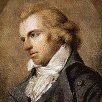Modern Languages and Literatures, Department of

German Language and Literature Papers
Document Type
Article
Date of this Version
4-16-1992
Abstract
Literary opinion generally concurs that Friedrich Hölderlin, whose writings abound with Christian references, was in some manner influenced by the pietist milieu of his native Württemberg. The precise nature of this influence is still in the process of being clarified, and results of the research vary widely depending on how Württemberg pietism is defined, what sources are consulted, and to what extent social or institutional factors are considered. Much of the literature addressing this topic is informed by historiographical assumptions which tend to flatten both Württemberg pietism and Hölderlin's writings into a historical teleology. I would like to examine here one body of this literature, the significant group of studies working out of an intellectual-historical tradition, which generally has taken up and enlarged upon certain assumptions regarding pietism as formulated by Wilhelm Dilthey. I will examine how this approach has conditioned the interpretation of Hölderlin's relationship to Württemberg pietism, and then discuss how the New Historicism offers an alternative interpretive strategy in treating this problem.


Comments
Published in CLIO: A Journal of Literature, History and the Philosophy of History 21 (1992), pp. 369–380. Copyright © 1992 Indiana University-Purdue University Fort Wayne. Used by permission. Journal homepage: http://www.ipfw.edu/engl/clio.html